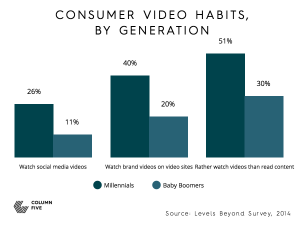There is a misconception that company culture is all about providing endless snacks and playing ping-pong. While those are great perks to have, they are simply window dressing. Company culture actually refers to the beliefs and behaviors that determine how a company’s employees and management interact to get work done. Every company has a culture, whether they actively work on it or not.
If you’re unsure about whether your company has a healthy culture, think about how you measure up in the following areas:
You Communicate
For communication to be most effective it must include everyone in the company, at all levels, and the communication must go both ways. The days of top-down hierarchal management are over, and the best companies are the ones who share information across departments and job levels. A 2015 Gallup report cited findings that among employees who strongly agreed that they could approach their manager with any type of question, 54% were engaged. Among those who strongly disagreed, 65% were actively disengaged.
You Are Employee-Centric
Rather than creating rigid job descriptions, titles, and ranking systems, your company focuses on hiring great people and putting their skills to best use. You support your employees’ career trajectories by promoting their advancement within your organization and offering training internally or via tuition reimbursement at other institutions.
Your Employees Understand How They Contribute
There is nothing more demotivating than doing work and feeling like it’s going into a void. Make sure your employees not only understand the corporate goals, but also how they contribute to those goals as individuals. Feeling like a valuable part of a team increases employee engagement and also strengthens the bonds between co-workers.
You Encourage Collaboration
A company’s rewards systems, whether formal (such as promotions) or informal (email congrats) should emphasize teamwork rather than individual contribution. Work environments can become toxic when employees spend their time competing with each other and become more focused on their own personal success than that of the organization. Actions that put the organization before the individual
You Speak Like Humans
We all know how important it is to “get your ducks in a row,” but if you find your employees communicating by using a lot of corporate speak clichés, it’s a pretty good sign that they don’t feel comfortable being themselves at work. Work-life balance is slowly morphing into work-life integration, where employees might be “on” during hours normally reserved for family, and vise-versa. It’s making less and less sense to have a “work self” and a “real self,” and Millennials especially have expressed their desire to blend their personal and professional lives. No one should feel that they have to put on a mask to appear more competent or authoritative.
You Recognize Good Work
So many managers fall into the bad habit of only discussing employee performance when it has fallen short. Study after study finds “lack of appreciation” as one of the top reasons that people leave their employers. Managers should be trained to recognize good performance regularly—and no, salaries and bonuses are not considered recognition! Sometimes a sincere message saying, “Thank you so much for doing such an outstanding job on this project” is worth more than any amount of money in terms of engaging the employee.
You Don’t Look to Assign Blame
When something goes wrong, if the first question is, “Whose fault is this?” rather than “How can we fix it?” your culture needs some work. When employees first look to assign blame, it shows that your culture breeds political behavior in which someone has to take the fall when there is a problem. If your culture is healthy, you’ll look to figure out why the mistake happened, fix it, and move on rather than wasting time finding a scapegoat.
Many people believe that company culture happens by accident, and there is nothing you can do to change it. It’s not an easy thing, but you can in fact work to shape your company’s culture with policies, hiring practices, and positive reinforcement of the behaviors you want to see.
Business & Finance Articles on Business 2 Community(19)
Report Post






